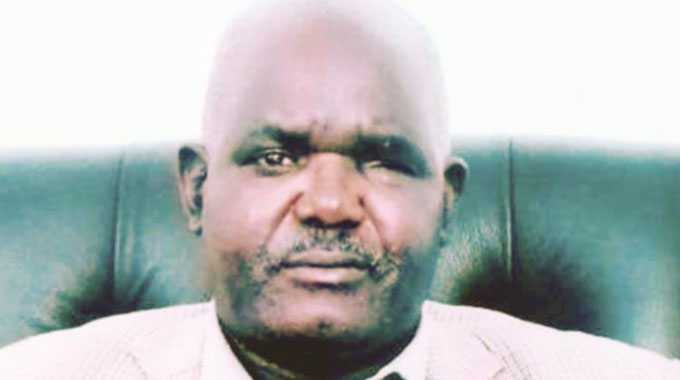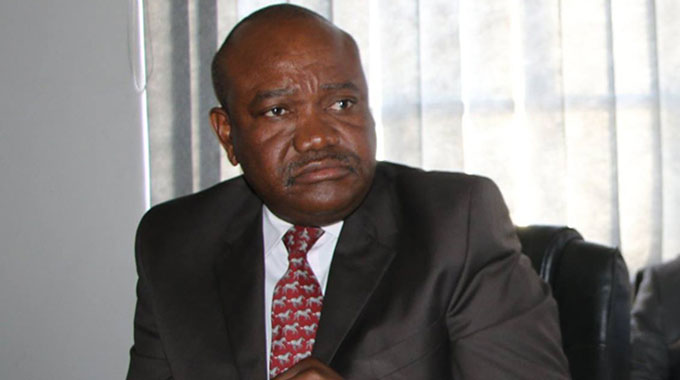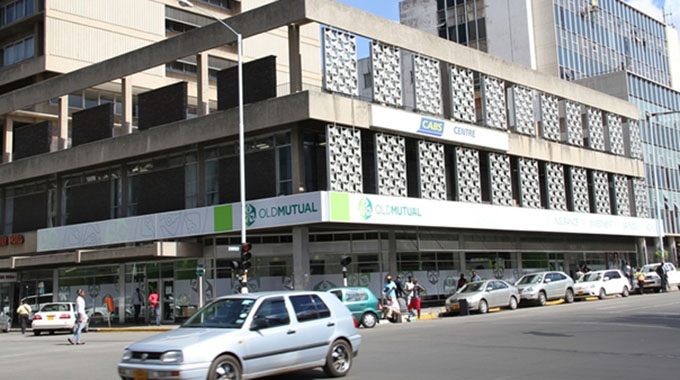Farewell Mukoma Karuru

Innocent Gore in WINDHOEK, Namibia
“IN every friend we lose a part of ourselves, and the best part.” This quote by 18th Century English poet Alexander Pope aptly sums up my feeling when I learnt of the death of Presidential cameraman Artwell Karuru.
I rarely write obituaries. I mostly specialise in writing editorials, otherwise known as the comment in the newspaper.
But the death of Karuru, a colleague, big brother, advisor and counsellor, has moved me. I have indeed lost a part of myself. It is a big blow, a bolt from the blue.
It was only last month that I sat down with Karuru for lunch at the Safari Hotel and Conference Centre here in Windhoek, when he was part of the Press corps accompanying President Mnangagwa on his official visit to Namibia.
We had a lot of catching up to do since I have been away from home for more than a year.
I had last seen him at the Sadc Extraordinary Summit in Ezulwini, Swaziland, last year and then we did not have much time to talk.
As I am writing this piece, I can’t help but shed tears. I cannot believe he is gone, moreso as I am in far off foreign lands and could not attend his funeral.
Karuru, who I preferred to call “mukoma” as I took him for a brother, was indeed a gentle giant, a teacher, counsellor and extraordinary person all rolled into one.
I first came to know Mukoma Karuru in the early 2000s, when I was assigned to cover former President Mugabe as The Herald’s Presidential reporter.
Naturally, covering the presidential beat is a huge challenge, especially for a young journalist trying to understand the goings-on at State House and in the President’s Office, and telling the story to the whole world. The biggest challenge to me was facing those menacing and always serious-looking security details surrounding the former President, the “men in dark glasses”.
No matter how you tried to smile or befriend them, they always looked menacing and it always made me nervous when there was an assignment at the President’s Office.
Most journalists who have covered former President Mugabe will remember one Muzavazi, a security detail who always bragged about how he could harass and kick people, including journalists, with his pointed shoe with a metal tip.
The late Muzavazi would brag that when he kicks you, you would not feel the pain there and then, but you would only feel the pain when you go back home, then you would die! No journalist wanted to cross Muzavazi’s path.
I was assigned to the presidential beat soon after the commencement of the Land Reform Programme in the year 2000 and at a time when our politics was getting heated with the coming on board of the MDC.
This meant a lot of travelling around the country to cover the presidential rallies and also abroad to cover international conferences and summits.
But it was around people like Mukoma Karuru and his colleague, Joseph Nyadzayo, the Presidential photographer, that the job would be easier to handle.
Karuru would ensure that I would not have the butterflies in my stomach when covering the former President’s assignments either at Zimbabwe House, State House, Munhumutapa Building or elsewhere in or out of the country.
In fact, Karuru would make us feel at home and at times when one missed a particular quote, it was easier to approach him so that he would replay the recording on his camera.
Soon I became closer to Mukoma Karuru after discovering that just like me, he was also diabetic.
So during the times that we would walk the corridors of power, waiting for the heads of state and government to come out and brief us, we would talk about how to manage the condition.
We would talk about what types of foods to eat, what to do to manage the lifetime condition, and so on.
Mukoma Karuru was a good storyteller too and would often tell rib-cracking tales. He would talk about his past, his upbringing, and his days at school deep in Mount Darwin, how he started work, his first lodgings in Chitungwiza and so on, in such a way that one would think these were tales from some fiction novel.
Jokes were the order of the day as we waited for the story outside closed-door presidential meetings, especially when you brought in Nyadzayo and “tsano” Reuben Barwe into the equation.
He always told us how he used to drink and smoke before learning of the dangers of indulging.
He was always fond of reciting a story on how he stopped smoking. Apparently, he did not have money to buy his own cigarette, so he stopped a fellow smoker on the street to ask for a puff.
But contrary to popular belief that smokers are so generous when it comes to sharing, he said the man told him in no uncertain terms: “Babamunini, kana musingagone kutenga fodya yenyu, musaipute! (Young man, if you can’t afford buying your own cigarette, don’t smoke!)”
The most hilarious of his stories was how he first saw the tarred road, having grown up in rural Mount Darwin in Mashonaland Central Province where he attended school. This story has also been told in another obituary by Nyadzayo published by The Sunday Mail.
His school organised a trip to the museum in the then Salisbury (now Harare) and hired a lorry to ferry them to the city. Karuru and other pupils sat in the middle of the lorry as bigger boys and girls sat on the edges. He always spoke about a bully at his school called Eriaby.
Eriaby was a giant and was always up to mischief, including taking all the girls at school. Rarely would Mukoma Karuru tell a story and not cite Eriaby’s theatrics.
I am sure most people who mingled with Karuru know about Eriaby.
So on this trip to Harare, Eriaby and other bigger boys sat on the edges and had a better view of their surroundings as the lorry journeyed towards the brighter lights of Salisbury.
As usual, most rural roads are gravel and bumpy and it was the same with their trip until suddenly there was a wild shout of “taraa, taraa, taraaaaa!”
With curiosity getting the better of them, little Artwell Karuru and the younger pupils sitting in the middle wanted to stand up so as to see what was happening, but they were pushed down by those in the middle.
It was only when they reached the city and after disembarking that he came face to face with a tarred road!
I vividly remember one day, during one of our trips to Singapore with the then President, and after a long day’s work, Mukoma Karuru and I decided to go into the bar at the hotel we were staying to quench our thirst (yes we could at times defy doctors’ orders and take a few “lighter” beers with Mukoma Karuru despite being diabetics!).
But there was a catch – we did not want Mr George Charamba, the Permanent secretary in the Ministry of Information, Media and Broadcasting Services, to know that we were going into the bar that was adjacent to the hotel’s lobby on the ground floor.
Mr Charamba was, as usual, reading a book in the lobby.
So we pretended we were going for a walk outside, but we sneaked into the bar and soon settled for some pilsner lager.
As we got carried away after imbibing a few, we forgot our cover.
We almost bumped into Mr Charamba as we were leaving the bar and he was going for a walk outside!
And I remember the nicknames that Mukoma Karuru gave to certain people working in the President’s Office then.
There was one “Recovery”, on account of him having seriously fallen ill at some point that people thought he would not make it. Then he recovered, hence the name Recovery! There was “Pull Him Down”, PHD for short.
Apparently, PHD was fond of seeing the downfall of others. There was “Ngendaa” on account of his Manyika accent and every time he wanted to say something, he would say “ngendaa yokuti (because of)” or words to that effect.
Then, of course, there were the “Men from the Training School”. Apparently the Men from the Training School passed out while journalists and cameramen graduated from university or college!
Mukoma Karuru was a passionate farmer and would speak about his farm in Shamva and his cattle.
When we met last time he was in Namibia, we discussed a deal in which he was to sell some of his cattle to me.
His farm was in the Shamva South Constituency and fell under Chief Musana of the Gumbo clan, of which I belong.
He was also a staunch family man and would passionately talk about his wife and children and his house in Zimre Park.
In fact, he, together with Nyadzayo, encouraged me to use the per diems I earned during my foreign travels with the former President to have my own roof over my head.
His untimely death has indeed punctured my heart.
It seems like it was only yesterday that we chatted animatedly that day at Safari Hotel.
Now I believe that death is a robber, it takes friends and relatives away from us.
Go well Mukoma Karuru!








Comments